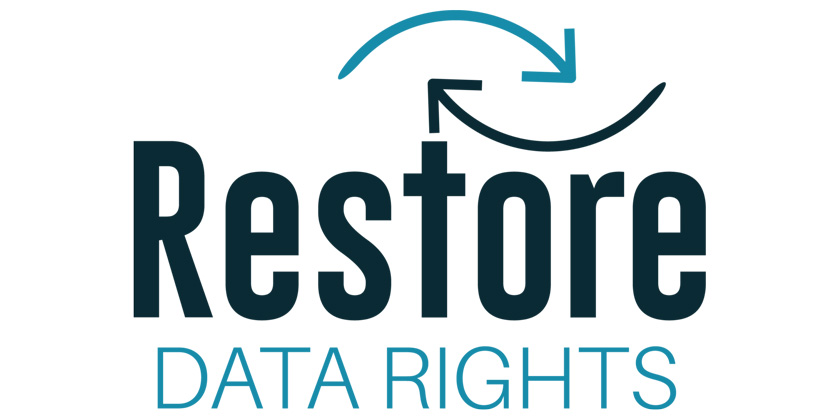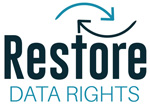Aggregated data and metadata are open to the public
The Nigeria Centre for Disease Control publishes Covid-19 related aggregate statistics daily on its website and on various social media platforms. This information includes the reported number of new confirmed Covid-19 positive cases by State; the reported number of aggregate Covid-19 positive cases; the aggregate number of reported “discharged” persons; and the reported number of aggregate Covid-19 deaths. The COVID-19 Tracking Dashboard, which expresses the aggregate data, is operated by the Nigeria Centre for Disease Control in partnership with eHealth Africa gGmbH.
Open source software and algorithms are used to analyse data
“A cloud based digital tool for surveillance called the Surveillance Outbreak Response Management and Analysis System “SORMAS” has been used by the Nigerian Centre for Disease Control to track the spread of coronavirus in Nigeria. SORMAS facilitates disease control and outbreak management, in addition to disease surveillance and epidemiological analysis, for all administrative levels of the public health system. SORMAS is an open-source and free-of-charge software, supported by a strong community of developers with funding from multiple sources. Source codes and technical specifications are managed and documented on the GitHub website, where software developers can access and alter them. For developing interoperability between SORMAS and other digital applications such as DHIS2, Fast Healthcare Interoperability Resources (FHIR) is used, which is an industry standard for exchanging healthcare data between systems. FHIR is also opensource.
The SORMAS-CoV module contains all disease-specific diagnostic standards, case definitions, and containment procedures defined by the World Health Organization. SORMAS allows for the assignment of different user roles within public health services. The module allows the targeted collection of relevant epidemiological data about the case person, including hospitalization, symptoms and persons with whom they have come into contact. Furthermore, the task management feature facilitates coordinated action of the surveillance personnel in the outbreak response.”
Information on what entities are collecting data, from what communities and for what purposes are made available to the public
“SORMAS was rolled out in all testing laboratories to implement real time data reporting. Data clerks were assigned by the Nigeria Centre for Disease Control to healthcare facilities to assist with data management. Employees of the Nigeria Centre for Disease Control have also supported the training of surveillance officers to use SORMAS in treatment centres, laboratories and in State Emergency Operations Centres. Cases of Covid-19 disease are reported from health facilities or local government areas through SORMAS using a tablet. By November 2020, the use of SORMAS was scaled up to cover all States to enable rapid analysis of cases, contact tracing and other disease surveillance functions at the State and national level. The data collected using SORMAS has formed the basis of various public health actions including the deployment of medical/laboratory supplies, modelling activities and decision making by the Presidential Task Force on COVID-19. Data from the Nigeria Centre for Disease Control’s event-based surveillance system is also reviewed weekly by its surveillance and communications teams to inform its “integrated rumour management strategy” and counter Covid-19 related misinformation.
In addition to using SORMAS, the Nigeria Centre for Disease Control has scaled up the use of its event-based surveillance system as an additional source of information. In this regard, a designated team located at the Nigeria Centre for Disease Control receives calls, and responds to text messages and live chats. The team also uses automated scanning and manual internet searches to identify chatter around COVID-19 and has developed a protocol to escalate concerns to the relevant personnel as needed. By the end of January 2021, six hundred and seventeen thousand and ninety-six calls had been responded to.
The Nigeria Centre for Disease Control has also issued a Guidance for States regarding the strategies to improve surveillance for Covid-19. In terms of this guidance, States are advised to maintain a database of contacts of identified Covid-19 contacts and to follow up with these contacts to ensure that they are tracked and have samples collected for testing. The guidance provides that data collection should be performed in line with the principles of confidentiality and using the appropriate case investigation forms on the electronic reporting platform SORMAS (or paper-based systems where there is no electronic system in place). The guidance emphasises the need for reasonable care to be exercised in capturing the data – including in relation to the completion of the case investigation forms prior to sample collection. State Teams are further advised to keep track of samples collected in their States on a daily basis and to ensure that every unique sample has a completed case investigation form and is entered onto the SORMAS system to remove disparities. Surveillance/data officers are also required to verify and confirm the entry of correct patient contact information to ensure that confirmed cases can be followed up, isolated, and that contact tracing is done effectively.
The logistics and supply chain of Nigeria’s public health response is monitored by a digital Logistics Management Information System operated by the Nigeria Centre for Disease Control. This system tracks supplies at national and State levels in order to attempt to prevent stockout and improve preparedness.
From September 2020, the process through which the risks associated with Covid-19 transmission by international travellers who enter and exit Nigeria has been digitised using the Nigeria International Travel Portal. This Portal was established with support from the Private Sector Coalition against COVID-19.
In the Operational Guidelines for the Police and other Law Enforcement Agencies in Nigeria, the Nigeria Police Force states that police and other law enforcement agencies are also expected to use proportionate police investigation resources to carryout contact tracing of individuals believed to have been exposed to Covid-19. The Guidelines require that such contact tracing must be performed with due respect to human rights and in collaboration with authorised health agencies. Citizens may telephonically submit complaints regarding the infringements of their rights by police arising from the enforcement of Covid-19 measures to the Assistance Inspector General of Police and/or the Force Public Relations Officers at the respective Zonal and State Commands.”
Data sharing agreements and related documents are openly published
All data generated through SORMAS is owned and processed in a central server under control of the Nigerian Centre for Disease Control.
Data ‘suppliers’ and other private sector actors are procured through open and competitive tender processes
“Under Nigerian law, all Ministries, Departments, and Agencies must publish any transactions above 5 million Naira on the National Open Treasury Portal. COVID-19 related response expenditures fall under emergency procurement procedures in terms of section 43 of the Public Procurement Act 2007. In terms of the Bureau of Public Procurement’s “Guidelines on the Conduct of Public Procurement Activities by Ministries, Departments and Agencies as a Result of the Covid-19 Pandemic/Lockdown”, the Nigerian government is required to publish all contract information regarding Covid-19 procurement in the public domain. All procurement plans, procurement tender opportunities, and contract awards related to the COVID-19 pandemic response must be published on the Bureau of Public Procurement website. The name of all contractors, description of the projects, contract sums and durations of the contracts must be published. The Bureau of Public Procurement is working in collaboration with the Federal Ministry of Finance, Budget and National Planning, the Office of the Accountant General of the Federation and the Budget Office of the Federation to ensure that these Guidelines are properly implemented.
Acording to the Public and Private Development Centre, however, only 5 out of more than 150 Ministries, Departments, and Agencies complied with these reporting obligations by June 2020. Data was also not published in machine-readable formats, and was often incomplete. By November 2020, 9 Ministries, Departments, and Agencies published 157 emergency contracts.”
Aggregated data and metadata are open to the public
Various government entities who control closed government datasets do not publish aggregated data. Beyond the sentinel hospital surveillance updates, there is also limited aggregated data and metadata regarding the data reported by employers to the NIOH.
Government COVID-19 related data strategies and plans are made publicly available
An extensive desktop search of online information using search engines and public websites did not reveal any further information beyond that otherwise stated in this row.
Details of intra-governmental data sharing are made openly available and are subject to parliamentary, judicial and public scrutiny
After an extensive desktop search of online information, no instances of parliamentary, judicial or public scrutiny of intra-governmental data sharing was found.

